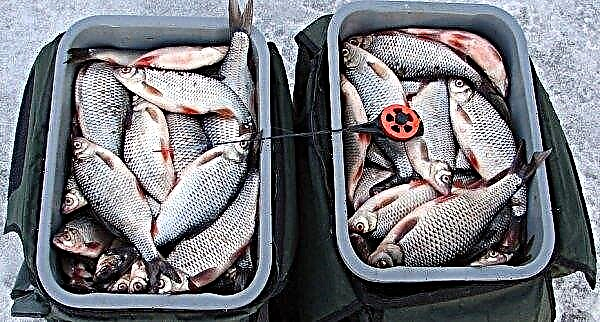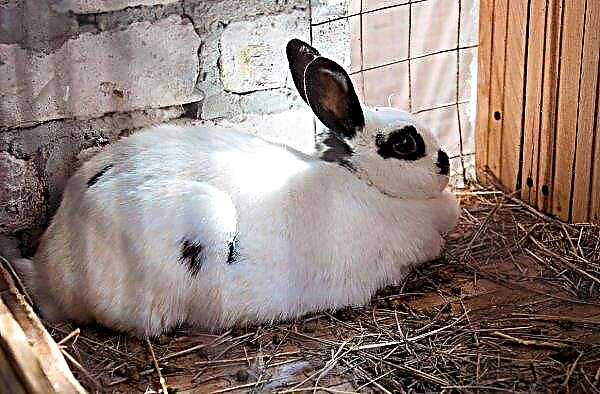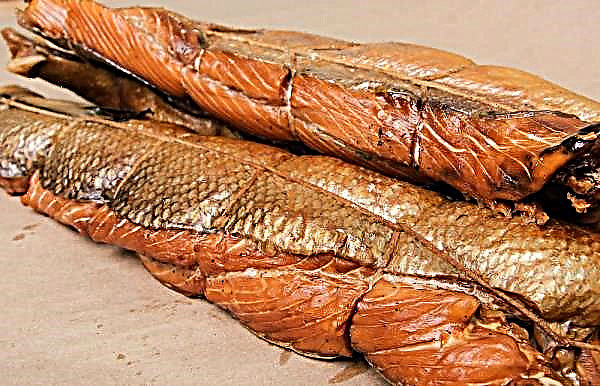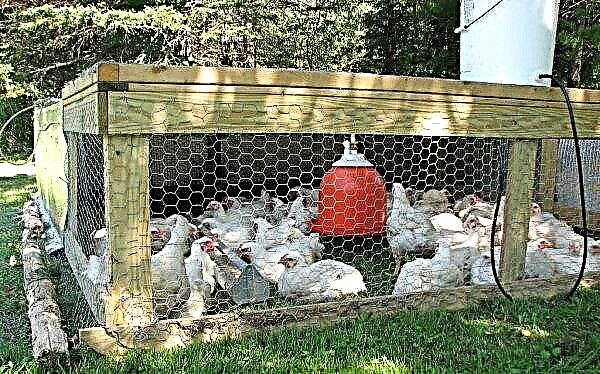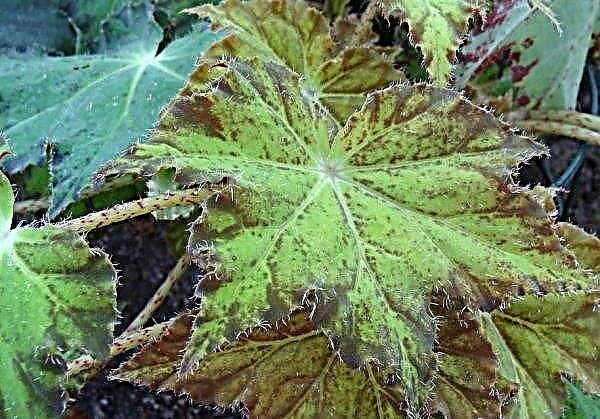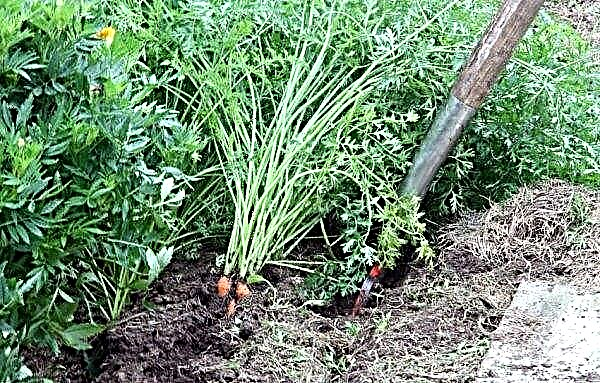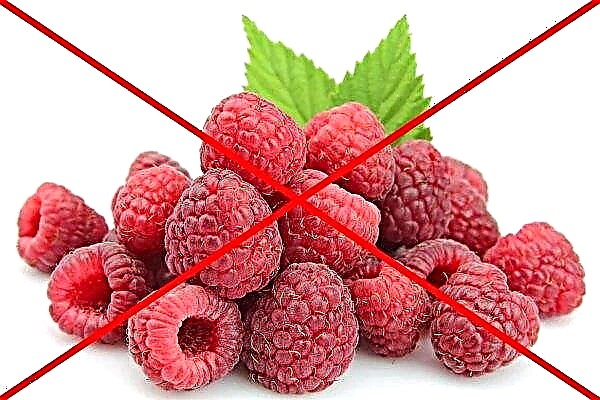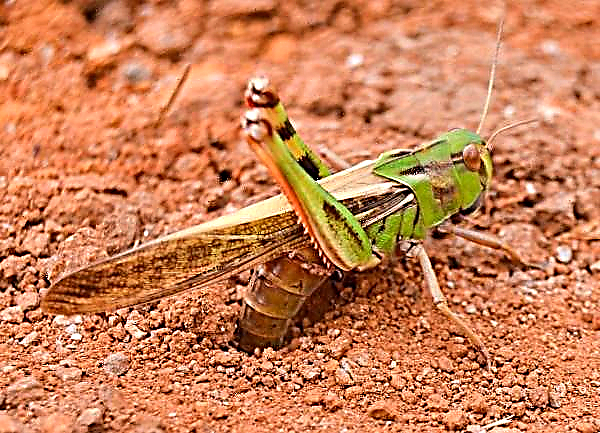To date, record levels of falling bee numbers have been recorded and the situation is only worsening every day. Beekeepers around the world are not the first year to sound the alarm - they know best than anyone what a sharp reduction in the number of these beneficial insects can threaten. Below are the main causes of this disaster, its consequences and the main ways to deal with the situation.
The main causes of death of bees
There are many reasons that can lead to the death of bees. Some of them are characteristic of the cold season, while others are associated with poor conditions. In any case, adhering to the basic rules of beekeeping, beekeepers can usually avoid the mass death of their wards.
Did you know? According to the legends of the ancient Indian peoples, honey is the beginning of all principles.
Lack of feed
This situation often arises in the winter and is directly related to the negligence of beekeepers and their attempts to save on feeding and harvesting honey for the winter. After all, a fact has long been known: bees are not so afraid of cold as hunger. Another reason is the presence of insects on the “bare” framework (central), which they do not leave because of the cold. In addition, poor quality food can also lead to the death of entire families. Due to the rapid crystallization of dark varieties, the optimal honey for wintering is a light variety (for example, linden). Nectar must also be tested for poisons and paddy, which can cause toxicosis and digestive upsets.
In addition, poor quality food can also lead to the death of entire families. Due to the rapid crystallization of dark varieties, the optimal honey for wintering is a light variety (for example, linden). Nectar must also be tested for poisons and paddy, which can cause toxicosis and digestive upsets.
Parasite exposure
Parasites are one of the main causes of bee death in the winter. One of the most common is the varroa tick, who came to us from Asia in the 70s of the last century. First of all, such a parasite sucks the internal fluids of insects, simultaneously infecting them with varroatosis, which results in a general weakening and death of bees. Subsequently, ticks move into unsealed hive cells to lay eggs and further develop larvaeHives also suffer from the invasion of mice, which can penetrate there through the smallest gaps. Insects gathered in the club can not give a proper rebuff. The only thing they show their displeasure with is noise and anxiety. As a rule, such families do not survive until spring.
Subsequently, ticks move into unsealed hive cells to lay eggs and further develop larvaeHives also suffer from the invasion of mice, which can penetrate there through the smallest gaps. Insects gathered in the club can not give a proper rebuff. The only thing they show their displeasure with is noise and anxiety. As a rule, such families do not survive until spring. Such parasites simply gnaw the hive from the inside and the inhabitants located in them, including
Such parasites simply gnaw the hive from the inside and the inhabitants located in them, including
Poor ventilation
It is also a common cause and the main mistake of many beekeepers. The lack of ventilation leads to the formation of dampness in the hives, which, in turn, leads to wetting of mats and frames and, as a result, cooling of the entire nest. Under such conditions, bees are forced to consume more honey in an attempt to warm themselves. As a result, the body of insects wears out quickly, the intestines are overflowing with feces, honey and bee bread grow moldy and “roam”. The combination of all these causes leads to the inevitable death of the whole family.
Did you know? In order to collect 100 g of honey, a bee flies a distance equal to 46,000 km. For comparison, the length of the equator is 40,075.7 km.
Factors that influence bee death
At the moment, there are many assumptions regarding the mass death of bees - many experts from around the world are busy identifying the main causes of such a catastrophe and finding the answer to the question: why do bees still die. Studies indicate a number of factors that lead to irreversible consequences.
Stress
There are many examples of situations that cause stress in bees. And most often all of them are the result of wrong actions of the beekeepers. For example, such a situation may occur when empty containers are placed in the spring, which is regarded by bees as a signal of empty cellars. Insects begin to work on wear, which quickly leads to exhaustion. In this case, the beekeeper gets extra honey, and the bees get an undermined organism and immunity. One of the main reasons is the rapid spread of infectious diseases, as well as the aggressive symptomatic behavior of insects during infection. Further, as a result, most beekeepers begin to conduct frequent inspections and dismantling of nests, which only leads to increased stress.
Insects begin to work on wear, which quickly leads to exhaustion. In this case, the beekeeper gets extra honey, and the bees get an undermined organism and immunity. One of the main reasons is the rapid spread of infectious diseases, as well as the aggressive symptomatic behavior of insects during infection. Further, as a result, most beekeepers begin to conduct frequent inspections and dismantling of nests, which only leads to increased stress.
Important! Placing a motorway or satellite base nearby can also be a cause of concern and stress for bees.
Infectious diseases
According to numerous studies, today in apiaries there are more and more cases of mass diseases of these insects with intestinal infections that develop into a chronic form. At the same time, the appearance of the family is quite healthy, but the life span of insects is significantly reduced. The frequent occurrence of keeping families on mobile platforms or in pavilions - in such cramped conditions, diseases spread very quickly. Bees in such circumstances have to use considerable efforts to completely compensate the family for the resources spent on their cultivation, which causes the formation of excess honey. The situation is aggravated by conditions of detention in which there is simply no protection against infectious diseases.
The frequent occurrence of keeping families on mobile platforms or in pavilions - in such cramped conditions, diseases spread very quickly. Bees in such circumstances have to use considerable efforts to completely compensate the family for the resources spent on their cultivation, which causes the formation of excess honey. The situation is aggravated by conditions of detention in which there is simply no protection against infectious diseases.
Important! The misuse of antibiotics and the lack of preventive measures are also the cause of death of insects.
An experienced beekeeper should be alerted by the following facts:
- lag of some families in development and honey collection;
- aggressive behavior when examining hives and in relation to their own uterus;
- lack of club formation with the onset of cold weather.
Diarrhea can also be a common cause of death. The main reason for its formation is late brood, which is typical in warm weather in the fall (not only in September, but also in October and November). In this case, the brood does not have time to fly around and leaves for the winter with a large amount of feces. Preventing the transformation of the disease into chronic forms and treatment in the early stages (without making an exception for healthy families as well), as well as changing living conditions, will help minimize the massive loss of bees in apiaries.
Preventing the transformation of the disease into chronic forms and treatment in the early stages (without making an exception for healthy families as well), as well as changing living conditions, will help minimize the massive loss of bees in apiaries.
Electromagnetic radiation
The results of studies on the mass death of bees are somewhat different. For example, according to Punjabi scientists, the main reason for this disaster is a mobile phone. The experience on the basis of which such conclusions were made lasted 3 months. Two hives were used, near one of which two mobile phones were switched on daily (duration - 15 minutes), and only the layout was displayed near the second.
After the end of the experiment, a violation of the work of the hive exposed to radiation was detected (the number of bees and eggs laid decreased, honey production decreased). The reason for this behavior was recognized as electromagnetic radiation from mobile phones. However, such a theory was repeatedly refuted and recognized as unfounded. Representatives of the British beekeeping pointed, for example, to the high activity of the development of beekeeping in London, where a large number of people use mobile communication daily
Representatives of the British beekeeping pointed, for example, to the high activity of the development of beekeeping in London, where a large number of people use mobile communication daily
Bad weather
One of the reasons that the beekeeper can not influence in any way is the bad weather at the location of the apiary. A vivid example is the time of a sharp increase in temperature (spring warming), during which the queen bees begin to lay their eggs, and the rest of the bees begin to feed the brood. If sudden frosts occur at this time, exhausted insects along with brood can die.
What threatens the extinction of bees
Despite the seemingly insignificant contribution of these insects to agriculture and wildlife, the consequences of their extinction can be a big blow to the economy of most countries, as well as negatively affect the life of every person.
Among the main consequences are the following:
- honey will disappear - a universal product that is used not only in food, but also as the basis of many cosmetic and medical preparations;
- due to the lack of pollination, many food products (apples, grapes, coffee, etc.) will disappear;
- there will be a need for pollination of many plants on their own, which can somewhat compensate for the absence of bees, but not become their full replacement;
- due to the lack of alfalfa and other plants that are pollinated only by bees, which are necessary for many domestic animals to produce milk, the production of milk and its derivatives will suffer;
- 100% replacement of cotton with synthetic fabrics will be required;
- a shortage of many products forms, which will lead to a significant increase in prices;
- the shortage and high cost of healthy and balanced food will cause a violation of the health of many people;
- a threat to the cotton, milk, coffee and other industries will lead to a global economic crisis;
- in many countries there will be famine.
Most of these problems will become possible only with the abrupt extinction of these beneficial insects, but the gradual extinction already today makes adjustments to our lives.
How to avoid the death of bees
Taking into account many factors affecting the life of bees, beekeepers can not always positively influence the current situation. However, if we discard reasons such as the use of pesticides on agricultural fields, sudden changes in the weather and the negative impact of cellular communications, the beekeeper can still improve the current situation somewhat.
For this, attention should be paid to:
- Proper preparation for the winter - make a supply of high-quality and proven feed, at the rate of 25 kg per 1 hive (in this case, it is better to overdo it than not to report). At the same time, frames filled with 2/3 nectar are placed in the center.
- Sanitized - it is necessary to carry out preventive measures of various diseases (varroatosis, acarapidosis and others), check the hive for the presence of even small holes into which rodents can penetrate, and also pay attention to ventilation.
- Putting together families and choosing the right nest for each of them - during the winter period, the beekeeper needs to control the entire apiary and, in case of any anxiety in the hives, find and eliminate the cause. You should also carefully monitor the feed and, if necessary, additionally feed the bees.
Beekeeper Tips
In order to avoid the general death of insects in the apiary, as well as to most accurately determine the reasons for the reduction in their numbers, Experienced beekeepers recommend:
- In the case of the death of bees in the winter, you can, almost without disturbing the family, determine the root cause. If the death is not more than 1 cup and is located at the bottom of a bunch, then wintering is considered successful. When subpestilence is scattered evenly throughout the bottom (abundance does not matter) - this is a tick attack.
- It is often necessary to change breeding material - that is, change bees from other apiaries or acquire new, purebred queens in order to avoid inbreeding.
- Many beekeepers use metal sheets (galvanizing) and nets to shelter hives from the negative effects of electromagnetic waves on bees.
- It is necessary to intervene as little as possible in the daily life of bees, and if necessary, inspect the hive (no more than 1 time in 2 weeks), carry out this procedure in the middle of the day - a period when old representatives of the families are absent.
 In general, the situation with a reduction in the number of bees is at a critical level. That is why beekeepers must, as never before, approach this problem with full responsibility and adhere strictly to all beekeeping rules.
In general, the situation with a reduction in the number of bees is at a critical level. That is why beekeepers must, as never before, approach this problem with full responsibility and adhere strictly to all beekeeping rules.


